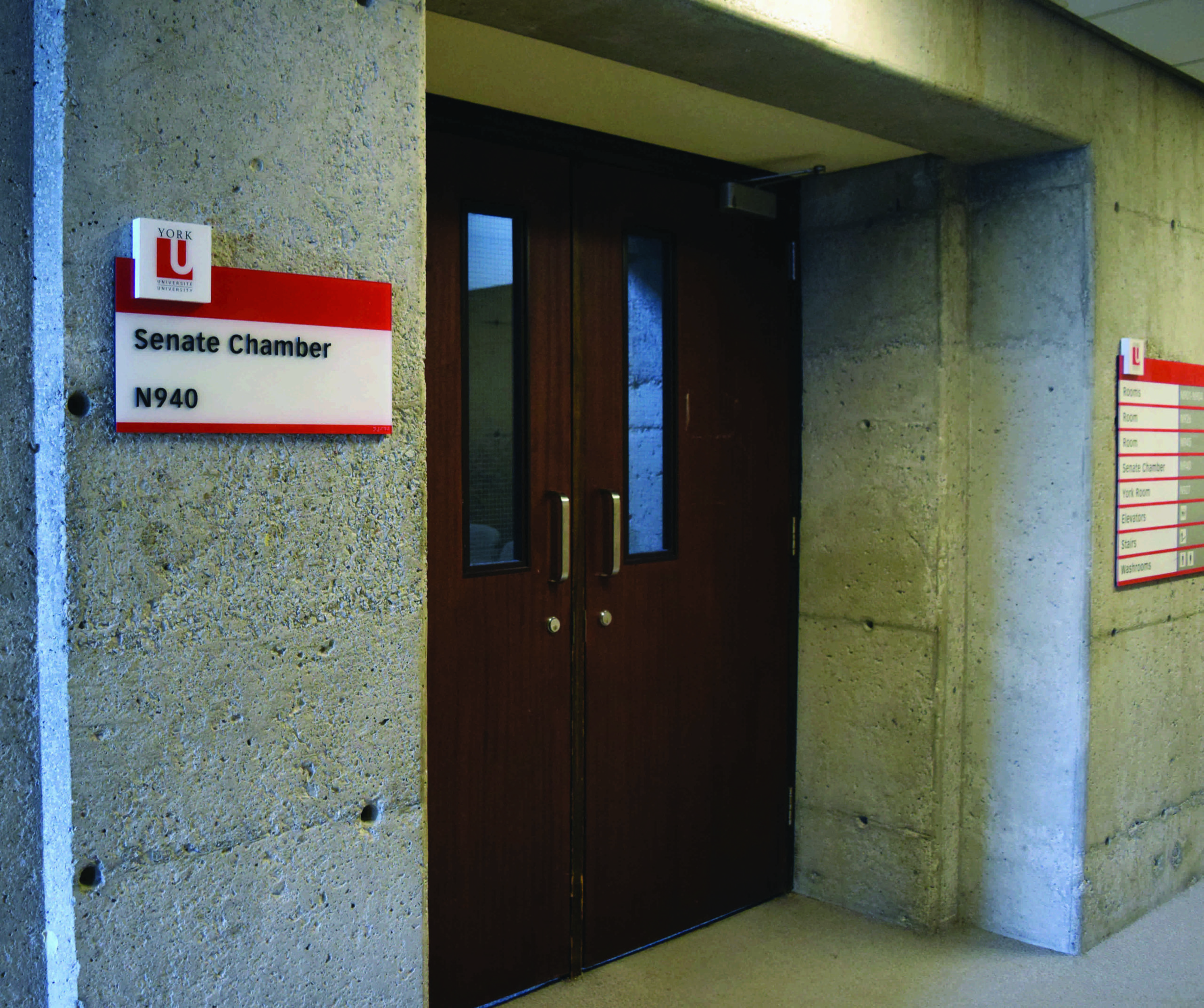Victoria Silman | Assistant News Editor
Featured Image: Eight York students are facing reprisals from the administration due to an alleged breach in the Student Code of Conduct. | Fatema Ali
On October 9, three of the eight students—Carrie Cooper, Karmah Dudin, and Susanna Hermanns (all undergraduates)—who were involved in the student sit-in within the Senate Chambers last March, will come before a tribunal to determine how their punishments should be doled out.
The graduate students, Susannah Mulvale, Gizem Cakmak, Stuart Schussler, Tyler Ball, and David Ravensbergen, have yet to receive a notice from the administration.
In an email sent to the students regarding their tribunal date, the administration also reopened the option for informal resolution—something they had originally declined due to the severity of the allegations.
The decision to reimplement the option of informal resolution could also have been influenced as a safety measure for some students involved, as well as pressure from the community against the allegations.
“They only opted for it when they found out the tribunal put students at risk, who were moving into residence to flee violence at home,” Cooper explains. “The MPP in our area called them. Both people and the government are talking about this.”
At this time, it is not clear what informal resolution means for the students. However it appears October 9 will be the date for discussion.
Regarding what they expect at the meeting, Cooper elaborates: “From our understanding of the Code, we will be sitting with a mediator and they’ll come forward with their punishments that they want us to do. We’ll say whether or not we approve of them, and we’ll discuss what’s best.”
Mulvale adds: “I spoke with Debbie Hanson, who said it’s a completely open process—it’s collaborative, so we don’t know.”
“They want us to express some kind of accountability,” she continues.
Though informal resolution may seem like a promising option, the administration can decide, at any time during the negotiation, to reject informal resolution and to continue to a tribunal—one that will be done collectively, despite each individual having complaints made against them separately.
When asked why these individuals were chosen out of the hundreds involved in the strike protests, none of them were able to provide a specific reason.
“We have no idea why they chose us. That’s what is part of the problem here. They just arbitrarily picked eight people—it’s all collective actions that we’re involved in. We didn’t do anything that other people weren’t doing,” Mulvale explains. “We didn’t do anything extraordinary.”
Furthermore, Ball states: “There is no single factor that overlaps on all eight people. There are individual factors, like people talked to the media, or people had a visual or vocal presence on social media, but that’s not true of all of us. No single thing.
“There doesn’t seem to be any rhyme or reason as to why they have chosen us,” he adds.
According to Hermanns, “We speak for the entire Chamber and for all of the actions that happened. If we look at the way our complaints are written, it doesn’t even say anything that we’ve specifically done. It says: ‘we know you’re affiliated to this, and therefore this group has done all of this, so you’re paying the price for that.’”
Petitions have been circling throughout campus, with faculty and staff calling for signatures in an attempt to back the students’ rights to free speech and assembly. According to Ball, the petitions have reached upwards of 1,000 signatures, with that number steadily rising.
Additionally, a rally will be held in Vari Hall on October 3 at 12:30 p.m.
In a request for comment, York Media spokespersons declined, stating: “It is important that we allow the process to continue, and therefore the University will not be commenting further on this matter.”




